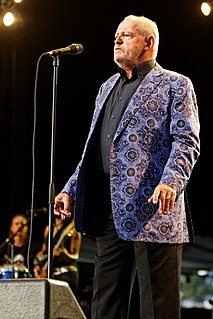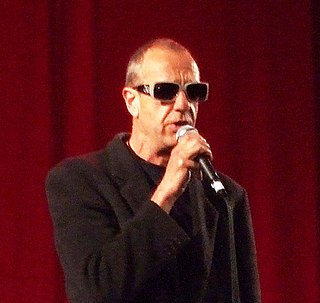A Quote by Joe Cocker
It's nice to get a response from the artists that I cover.
Related Quotes
When our embassy is attacked in Benghazi by terrorists and there is no response, you get more bad behavior. When Russia invades Ukraine and there is no response, you get more bad behavior. When Syria crosses the red line and there is no response, you get more bad behavior. When Iran launches tests of ballistic missiles and there is no response, you get more bad behavior. When North Korea attacks Sony Pictures and there is no response, you get more bad behavior. In other words, Mrs. Clinton, you cannot lead from behind. We must respond when we are attacked or provoked.
As a journalist, I never critiqued anyone. I never review books. I've never felt qualified as a musician to say whether someone is a good musician or a bad musician. What happens with Black writers and Black artists is that if you're critiqued, for example, by a Black historian who wants to get his name on the cover of "The New York Times," and he says something, like, wacky, well, he'll get his name on the cover of "The New York Times" and he might get tenure, and your career suffers.
I don't want to be the cranky old guy, but a lot of critics are too forgiving of mediocre artists. When you see these 'American Idol' people on the cover of 'Rolling Stone' being written about as serious artists, there's something wrong with that. You can erase them from the history of rock n' roll, and you wouldn't notice.




































